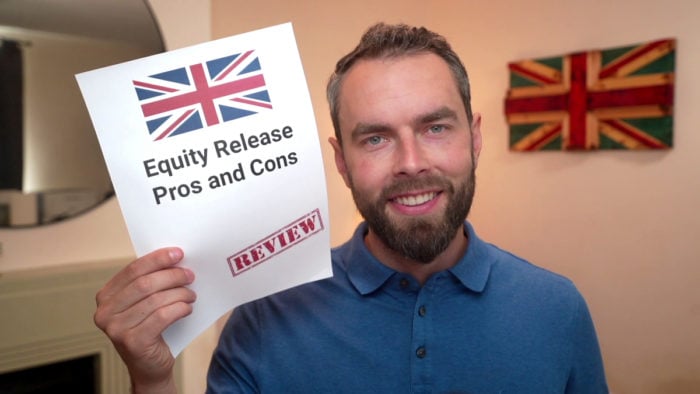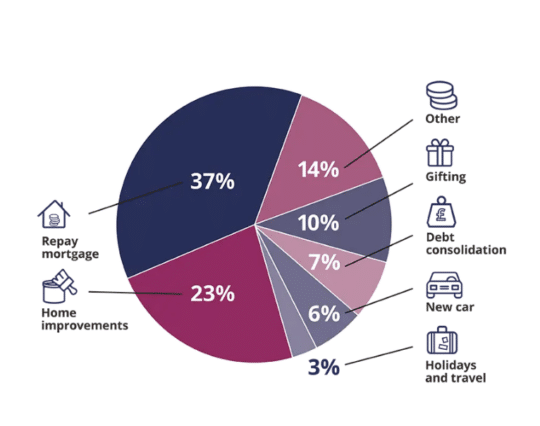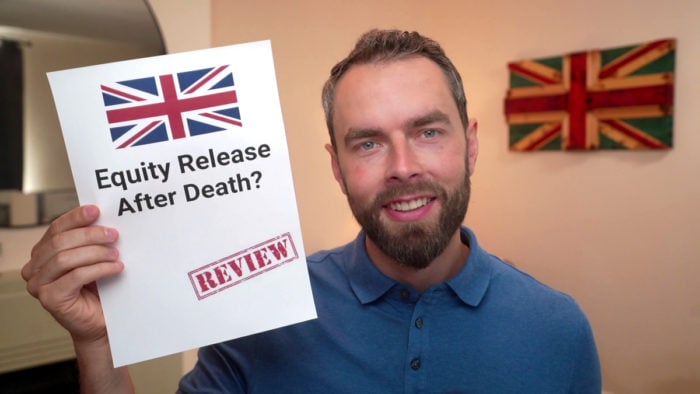Pros and Cons of Equity Release – Complete Analysis
Our preferred equity release adviser is Age Partnership. For free and impartial money advice you can visit MoneyHelper.

Our preferred equity release adviser is Age Partnership. For free and impartial money advice you can visit MoneyHelper.
What are the pros and cons of equity release?
We help you weigh up lifetime mortgages and other plans by discussing the advantages and disadvantages of equity release. If you are seriously considering this option, you should also seek professional advice from an independent financial adviser.
But our guide is a great starting point. Keep reading to uncover the pros and cons of equity release.
The Two Main Types
We’ve explained equity release from afar, but how does it work in regards to specific products? In the UK, there are two main types of equity release with a further type that just is a variation. These are:
- Lifetime mortgage, Enhanced lifetime mortgage
- Home reversion plan
Lifetime Mortgage
A lifetime mortgage allows you to release some of your home equity as a lump sum or drawdown, based on the current value of your home. This amount is subject to a fixed rate of interest, with the amount of interest owed rolling up each month and adding to the total owed. You may be allowed to make voluntary interest payments to rescue your debt. The debt is only repaid when your home is sold.
There is an enhanced variation of a lifetime mortgage where the lender accounts for health concerns with your application. If you are judged to have a lesser life expectancy based on how you answer a lifestyle questionnaire or due to medical history, you may be able to release more equity.
Home reversion scheme
A home reversion plan is when an equity release company offers to give you a lump sum or drawdown facility in exchange for a percentage of your home’s future sale value. However, the amount offered will be well below what the home is worth.
For example, you may get 20% of your home’s current value in exchange for 50% of its future sale price. This is instead of charging an interest rate.
The Advantages and Disadvantages (extended list!)
To assist you in making a decision on equity release, we have listed the advantages and disadvantages of equity release below. Don’t solely rely on these to make your mind up. Source independent mortgage and legal advice as well.
» TAKE ACTION NOW: Find out how much equity you could release
What are the advantages?
The main advantages of equity release are:
- The sum of money you receive is tax-free and can be paid out as a single payment or as a regular retirement income (drawdown)
- You may be able to access more equity if you have a shorter life expectancy
- The money can be spent on any purpose or even given away
- You continue living in your home without paying rent
- There are no monthly repayments unless you opt into them
- You only pay back the debt when you die or move into long-term care
- Equity Release Council members guarantee you will never be evicted for normal reasons
- Equity Release Council members also commit to the negative equity guarantee. The negative equity guarantee ensures that you never have to pay back more than the value of your home when sold. So if there is a shortfall, this isn’t payable from your estate or by estate beneficiaries.
- Sometimes, equity release can be used to mitigate the inheritance tax liability of your beneficiaries. But it’s not straightforward and you should seek advice first.
What are the disadvantages?
The main disadvantages of equity release are:
- No matter what scheme you choose, the total cost of equity release is unattractive. Even low interest rates over a decade will double your debt. And home reversion plans are not favourable either.
- By choosing the convenience of quick cash and no repayments, you are significantly reducing the value of the estate you leave behind for loved ones, who may or may not need the money in the future.
- It can make moving home or downsizing difficult, although not impossible (more in the next section).
- It’s really hard to go back on your decision and get out of a lifetime mortgage, especially considering early repayment charges can be eye-watering.
- The money you receive may reduce your entitlement to state benefits.
- You cannot take out another loan against your home afterwards.
- You’ll need to pay lots of fees for advice and solicitors.
How equity release could help
More than 2 million people have used Age Partnership to release equity since 2004.
How your money is up to you, but here’s what their customers do…
Find out how much equity you could release by clicking the button below.
In partnership with Age Partnership.
Is it a good or bad idea?
It’s not possible to say whether equity release is a bad or good idea because it depends entirely on personal circumstances.
If you are financially well off and do not need additional cash, then releasing equity will not be the most financially advantageous decision in regards to the inheritance you leave behind. By not releasing equity, your beneficiaries will inherit 100% of your home. By passing a property on to a child or grandchild, you’ll also be able to increase the inheritance tax threshold by £150,000.
But it could be a good idea if you want to make retirement more enjoyable or financially comfortable, especially if your estate beneficiaries are not relying on the money and assets you leave behind or you have nobody to leave them to.
A wide range of (personal) factors must be considered when thinking about equity release. They can be worthwhile – or not.

